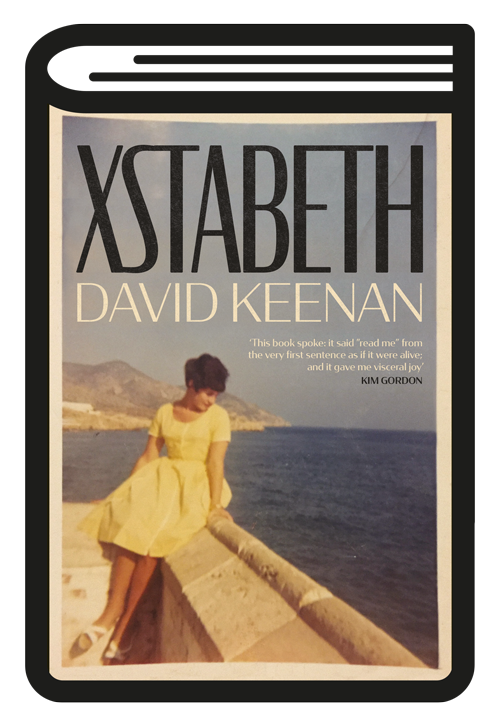My first instinct when setting about reviewing David Keenan’s extraordinary Xstabeth was to write in the style of the novel itself. There was, I felt, no better way. To get to the essence, the essential. The je ne sais quoi. The jokes. There are loads of them. Though it’s not obviously. I thought. Sincerely.

But then I decided, no, it would only read like a poor parody of a voice which is defined by its singularity and personal truth. So I dropped that idea.
It is a challenge though, to review a book whose character and search for meaning is so tightly bound in the stream of consciousness it’s written in. Readers who enjoyed Scottish writer Keenan’s previous free-wheeling novels, This is Memorial Device and the Gordon Burn Prize-winning For the Good Times, might feel more challenged by this highly unconventional follow-up.
Keenan had a career (though he might balk at that word) as an experimental musician and music journalist before he turned to music, so it might not be a crazy indulgence to say that Xstabeth is the moment the record label liberated him and told him to knock himself out.
Xstabeth has a structure most akin to early American ecstatic free jazz
This waxing waning story-ish about a young Russian girl, Aneliya, whose love is torn between her complex but naive musician father and his ‘famouser’ best friend, may initially seem overtly stylistic, but once you fall into its rhythm it casts an irresistible spell. Its rejection of standard punctuation – Keenan has no interest in pursuing a drifting train of thought if it putters too far along a siding – becomes oddly relaxing, like a dreamy bout of hypnotherapy.
Xstabeth has a structure most akin to early American ecstatic free jazz. There are periods when Keenan wanders nebulously through ideas about moral philosophy, the poetry of Leonard Cohen, the slipperiness of memory, sexual fetishisation and golf (yes, golf, not a typo) like a happy uninterrupted and often funny drunk.









